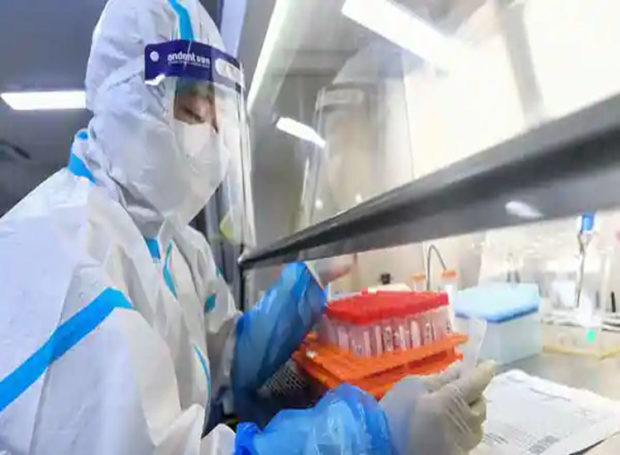
WHO scientist in a documentary reveals, China pressured Covid-19 probe to drop lab-leak theory
Team Udayavani, Aug 13, 2021, 11:14 AM IST

Source: AFP
Earlier this year, a World Health Organization-led team traveled to China to investigate the origins of the COVID-19 pandemic. According to a documentary released Thursday by Danish television channel TV2, a top official said he was worried about safety standards at a laboratory close to the seafood market where the first human cases were detected.
The Wuhan branch of the Chinese Center for Disease Control and Prevention was handling coronaviruses “without potentially having the same level of expertise or safety or who knows,” Peter Ben Embarek said during a conference call in January, according to footage shown by TV2. Ben Embarek is a WHO expert on disease transmission from animals to humans and one of the team’s leaders.
But months later, when WHO released its dense report on its mission to Wuhan, the U.N. health agency concluded that a leak of the virus from the lab was “extremely unlikely” to have caused COVID-19. The WHO report even lent credence to a fringe theory promoted by the Chinese government that the virus may have been spread via frozen seafood packaging.
In recent weeks, however, WHO chief Tedros Adhanom Ghebreyesus has acknowledged it was “ premature ” to rule out a possible lab leak as the source of COVID-19, saying last month that he was asking China to be more transparent about the early days of the pandemic.
“I was a lab technician myself. I’m an immunologist and I have worked in the lab and lab accidents happen,” Tedros said. “It’s common.”
In the Danish TV2 documentary, the WHO’s Ben Embarek is pictured arriving in China, inspecting the stalls at the Huanan seafood market in Wuhan and examining what he hypothesizes might have been living quarters for people who handled live animals there — raising the possibility that the virus may have jumped from animals to people at the market.
“It would mean that the contact between the human beings and whatever may have been in the market i.e. virus and maybe live animals would have been more intense,” Ben Embarek said. “It goes without saying that the close contact would be doubled many times between humans and animals if you are among them around the clock.”
Scientists have previously thought that because many of the earliest known human cases at Wuhan’s Huanan market appeared to have no prior connection to each other, the market might have simply been the place where cases were amplified, not where the virus first breached the species barrier.
(With inputs from AP)
Udayavani is now on Telegram. Click here to join our channel and stay updated with the latest news.
Top News

Related Articles More
Thumbay group to set up first private psychiatric and rehabilitation hospital in Sharjah

China approves world’s largest dam over Brahmaputra river close to Indian border

Intruder killed along India-Pakistan border in Rajasthan

Kazakhstan says 42 people likely dead in Azerbaijan Airlines’ plane crash

Killed in Russia-Ukraine war six months ago, UP man’s body brought back home
MUST WATCH
Latest Additions

Uppinangady: Key match leads to swapping of scooters

Manmohan Singh’s contributions to Bharat will always be remembered: RSS

M’luru: Two held for stalking, threatening woman in divorce case

Two killed, one injured as sulphur tank explodes at sugar factory in Jalna district
Thumbay group to set up first private psychiatric and rehabilitation hospital in Sharjah
Thanks for visiting Udayavani
You seem to have an Ad Blocker on.
To continue reading, please turn it off or whitelist Udayavani.





















